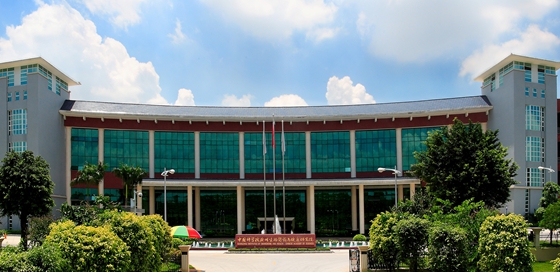2003年,非典型肺炎过后,中国科学院广州生物医药与健康研究院(简称“广州健康院”)在中国科学院、广东省、广州市共建三方的见证下应运而生,于2006年3月正式成立。广州健康院是中科院首个面向地方经济社会的发展需求、在实施“知识创新工程”试点中与地方共建的研究所,首次采取院、省、市联合共建以及理事会领导下的院长负责制的全新运行体制机制。研究院的成立填补了当时华南地区生物医药领域国立科研机构的空白,对中国新型研发机构实有筚路蓝缕的探索之功。
广州健康院面向人类健康与“健康中国”战略,聚焦生命健康领域前沿重大科学问题和重要疾病机理,以建成国际一流的生物医药与健康领域新型研发机构和创新人才培养高地为目标,提供保障人类健康和疾病防控的原创性基础理论、突破性前沿技术与系统性解决方案为使命,优化科技成果快速转化的机制与途径,满足国家战略需求和区域经济社会发展,促进生物医药产业发展,发挥国家战略科技力量的核心作用。
广州健康院主要从事干细胞与再生医学、化学生物学、感染与免疫、公共健康、科研装备研制等领域的研究,建有细胞谱系与发育研究中心、细胞再生与生物治疗研究中心、感染与免疫研究中心、化学生物学与药物研究中心、健康研究中心等5个科研单元,建有完善的所级科研条件综合支撑中心,其中公共平台设有分析测试中心、实验动物中心、生物医学数据与超算中心、治疗性细胞制备研究中心、移动式生物安全三级实验室等,以及多个特色支撑平台;联合建成了呼吸疾病国家重点实验室(与广州呼吸疾病研究所共建)、中国科学院再生生物学重点实验室、广东省干细胞与再生医学重点实验室及广东省生物医药计算重点实验室,为广州再生医学与健康广东省实验室的主要建设依托单位和中科院香港创新研究院干细胞创新中心的依托单位。

In 2003, after SARS, Guangzhou Institute of Biomedicine and Health of the Chinese Academy of Sciences (" Guangzhou Institute of Health "for short) came into being under the joint efforts of the Chinese Academy of Sciences, Guangdong Province and Guangzhou City, and was formally established in March 2006. Guangzhou Institute of Health is the first institute of Chinese Academy of Sciences (CAS) to meet the needs of local economic and social development and to co-build with local governments in the pilot of the "Knowledge Innovation Project". For the first time, Guangzhou Institute of Health has adopted the new operating system and mechanism of co-construction by the institute, the province and the city and the president responsibility system under the leadership of the Council. The establishment of the Institute filled the gap of national research institutes in the field of biomedicine in South China at that time, and made a contribution to the exploration of new research institutes in China.
Oriented towards human health and the strategy of "Healthy China", Guangzhou Health Institute focuses on major cutting-edge scientific issues and important disease mechanisms in the field of life and health, with the goal of building a world-class new research and development institution in the field of biomedicine and health and training innovative talents. The mission is to provide original basic theories, breakthrough cutting-edge technologies and systematic solutions to safeguard human health and disease prevention and control, optimize mechanisms and ways for rapid transformation of scientific and technological achievements, meet national strategic needs and regional economic and social development, promote the development of the biomedical industry, and play the core role of national strategic scientific and technological forces.
Guangzhou Health Institute is mainly engaged in the research of stem cell and regenerative medicine, chemical biology, infection and immunity, public health, research equipment development and other fields. It has 5 research units: Cell Lineage and Development Research Center, Cell Regeneration and Biological Therapy Research Center, Infection and Immunity Research Center, Chemical Biology and Drug Research Center, and Health Research Center. It has a complete comprehensive support center for scientific research conditions at the university level, among which the public platform is equipped with analysis and testing center, laboratory animal center, biomedical data and supercomputer center, therapeutic cell preparation and research center, mobile biosafety Level 3 laboratory, as well as a number of characteristic support platforms. The State Key Laboratory of Respiratory Diseases (jointly established with Guangzhou Institute of Respiratory Diseases), Key Laboratory of Regenerative Biology, Chinese Academy of Sciences, Guangdong Provincial Key Laboratory of Stem Cell and Regenerative Medicine and Guangdong Provincial Key Laboratory of Biomedical Computing, It is the main construction support unit of Guangdong Provincial Laboratory of Regenerative Medicine and Health in Guangzhou and the support unit of Stem Cell Innovation Center of Hong Kong Institute of Innovation, Chinese Academy of Sciences.